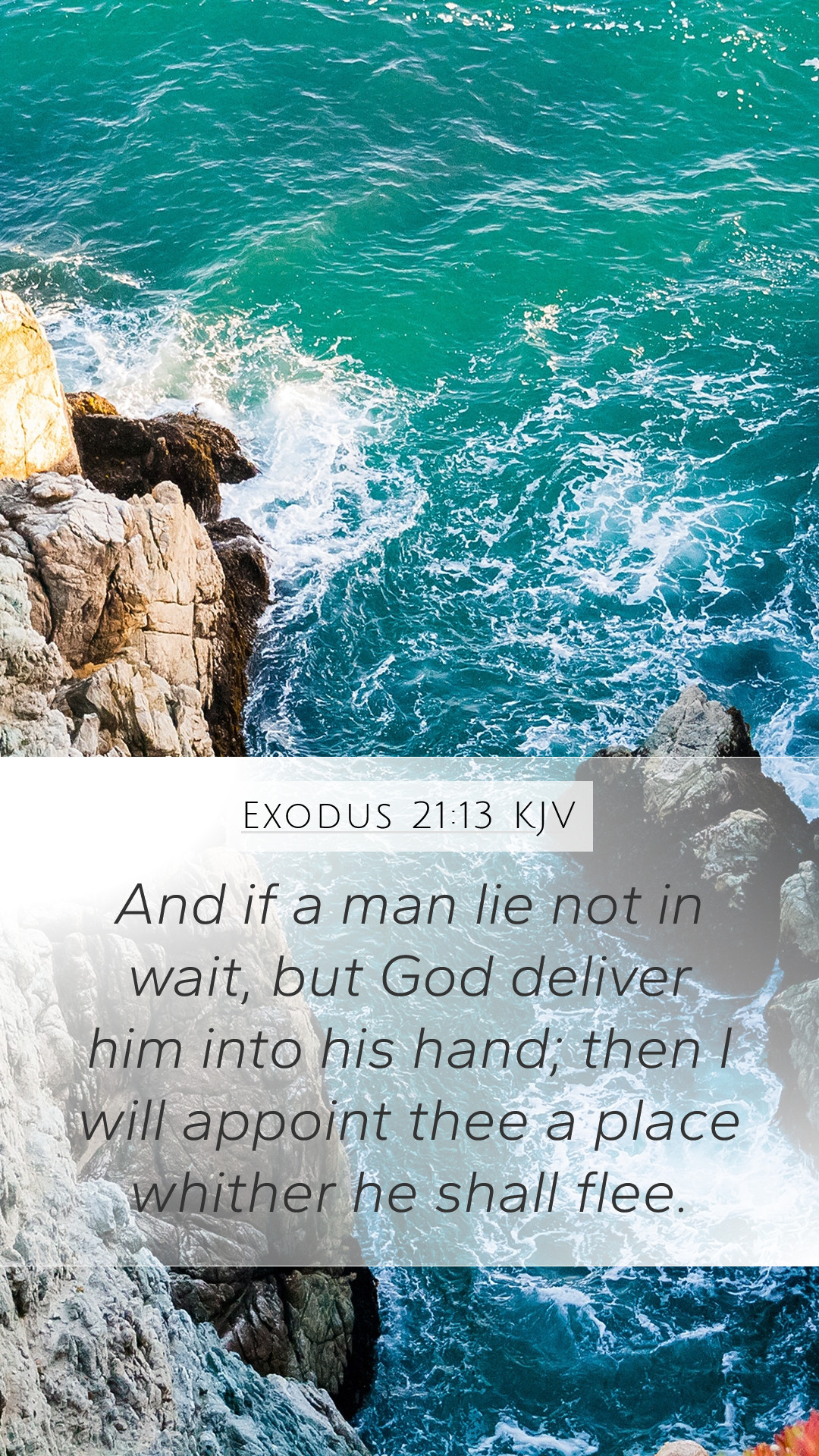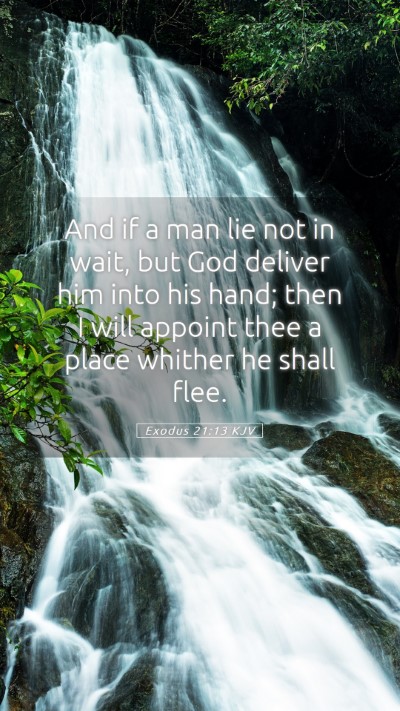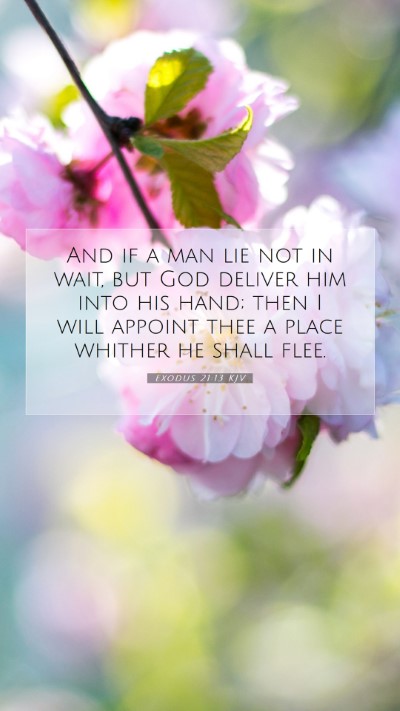Bible Verse Commentary: Exodus 21:13
Verse: "And if a man lie not in wait, but God deliver him into his hand; then I will appoint thee a place whither he shall flee."
Understanding the Context of Exodus 21:13
This verse is part of a larger section in the Book of Exodus that outlines laws regarding personal injury and manslaughter. Exodus 21 addresses various issues related to justice, punishment, and the Israelite legal system. It presents regulations that seek to differentiate between intentional and unintentional acts, particularly in cases that result in harm to others.
Bible Verse Meanings and Interpretations
This verse speaks to the concept of accidental harm versus premeditated actions. According to Matthew Henry, the distinction is crucial: if a person unintentionally causes harm (not lying in wait), the punishment differs significantly compared to intentional harm. It highlights God's justice and mercy, providing a safe haven for someone who did not mean to harm another, illustrating God's compassion and understanding of human imperfection.
Albert Barnes notes that the term 'God deliver him into his hand' implies a divine intervention that leads to an accidental circumstance. This reflects the belief that all events ultimately align with divine will, suggesting both accountability and grace. The 'place whither he shall flee' serves as a precursor to cities of refuge, providing a place of safety for those involved in unintentional wrongdoing.
Adam Clarke further emphasizes the concept of manslaughter laws being designed to separate the guilty from the innocent. This function of safeguarding the innocent and allowing for justice to take its course is paramount in the structure of the law given to Israel.
Core Themes in Exodus 21:13
-
Judicial Fairness: The laws are structured to provide fair treatment based on intention and the nature of the act, which demonstrates a significant biblical principle of justice.
-
God's Providence: The verse reflects the belief that God's sovereignty oversees human actions, even in instances of accidental harm.
-
Mercy and Refuge: The establishment of a place of refuge signifies God's mercy, offering protection for the unintentional offender.
Application of Exodus 21:13 in Today's Life
In modern contexts, this verse invites deeper reflection on our responsibility towards others. It challenges us to consider our intentions and the consequences of our actions. Whether in personal interactions or broader societal laws, the principles of justice and mercy remain relevant. Furthermore, it prompts individuals to seek forgiveness and reconciliation while recognizing the complexities of human behavior.
Bible Cross References
- Numbers 35:11-15: Details about cities of refuge established for those who kill unintentionally.
- Deuteronomy 19:4-6: Further explanations concerning the cities of refuge and how they articulate the law of unintentional killing.
- Exodus 21:12: Relates to intentional murder, establishing the contrast between premeditated and accidental harm.
Conclusion
Exodus 21:13 not only carries historical significance but provides profound bible verse interpretation relating to justice, mercy, and the human condition. Through effective bible study resources and tools, one can explore the layers of meaning presented in the scripture, fostering a deeper understanding of biblical principles and their application in daily life.


